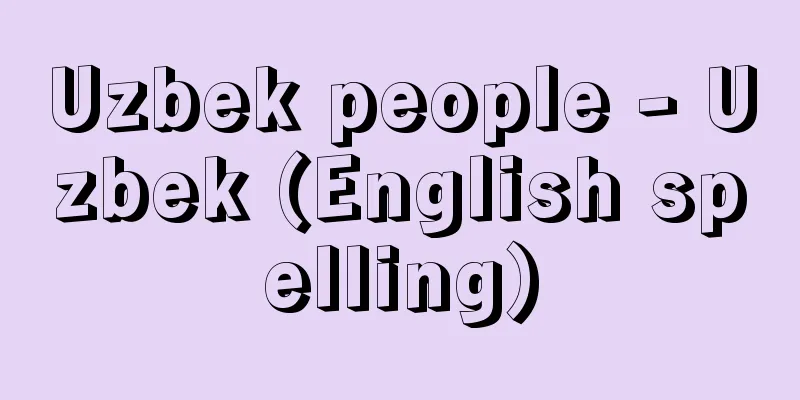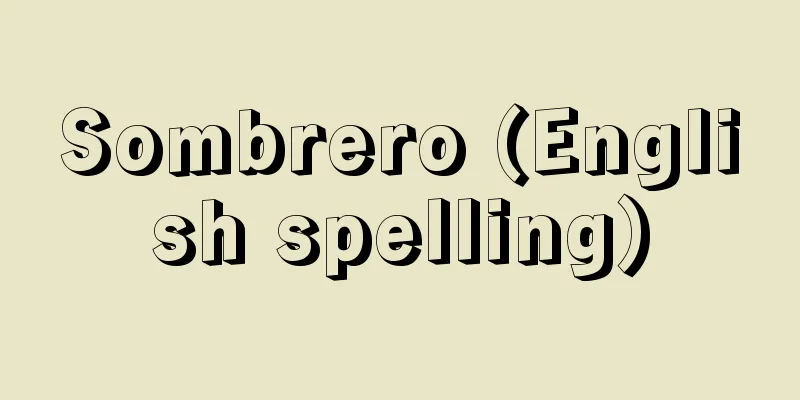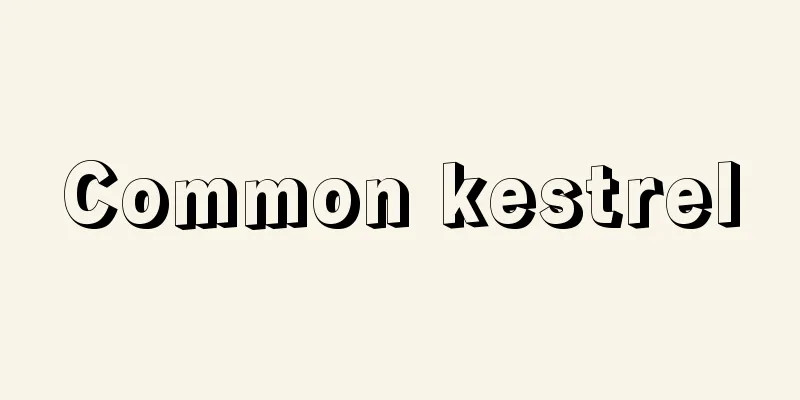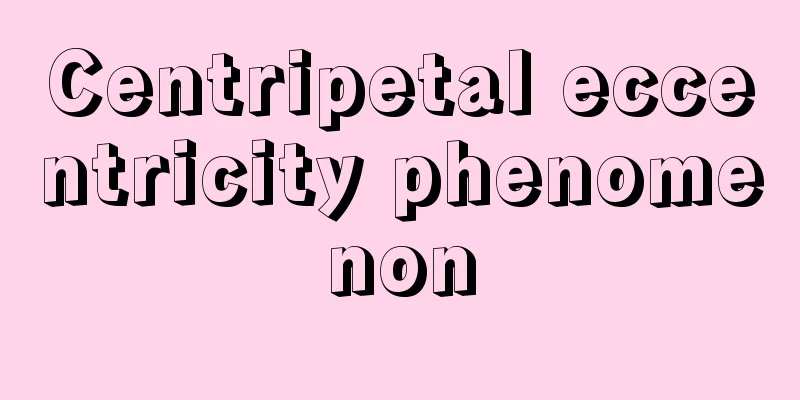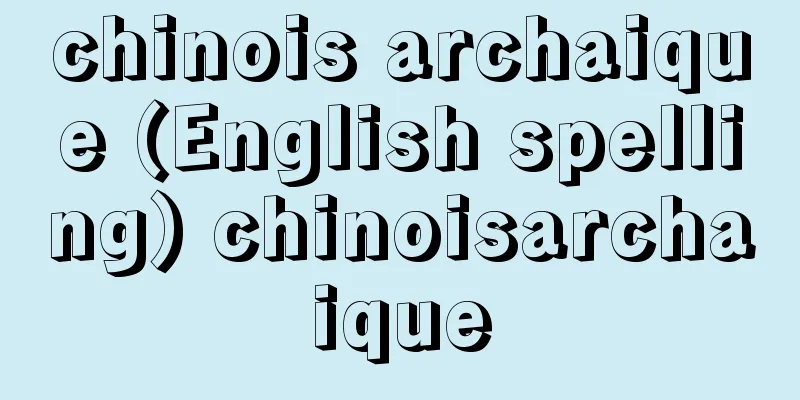SMON - Sumon (English spelling) SMON

|
The name of this disease is an acronym of subacute myelo-optico-neuropathy, and was given when the cause was still unknown. Nowadays, it should be called toxic neuropathy caused by taking chinoform. Since the early 1950s, this was a neurological disease of unknown cause that had affected many patients in Japan, but in 1970, suspicions that it was a toxic neurological disease caused by taking chinoform became stronger, and with the discontinuation of sales of chinoform, cases of this disease were no longer seen. In March 1972, it was concluded that the cause was taking chinoform, and the Ministry of Health and Welfare (now the Ministry of Health, Labour and Welfare) took measures to treat it as a specified disease (incurable disease). It is a disease that requires serious reflection as one of the recent drug-related injuries, and although there have been no new cases, compensation and treatment for the many patients suffering from aftereffects, and the rehabilitation of these patients into society, are major issues. Generally, chinoform drugs are extremely effective for diarrhea, abdominal pain, and nausea caused by gastroenteritis, biliary tract disease, liver disease, and many other digestive diseases, but the higher the daily dose and the longer the period of use, the higher the incidence of SMON, which is seen in more than in adults, but more often in women than men. Pathologically, symmetrical subacute degenerative findings are seen in the spinal cord, peripheral nerves, and optic nerves, with degeneration of the posterior and lateral columns in the spinal cord and strong changes in the axons in the peripheral and optic nerves. Symptoms of this disease are characterized by abdominal symptoms such as diarrhea and abdominal pain appearing before the neurological symptoms, followed by acute or subacute symmetrical severe sensory disturbances in the lower body, especially in the extremities, with the boundaries of the sensory disturbances being unclear. Among the sensory disturbances, abnormal sensations are prominent, with unbearable sensations such as tightness or tingling characteristically occurring. At the same time, muscle weakness in the lower limbs and pyramidal tract symptoms (increased tendon reflexes, positive Babinski reflex) are often present. Other symptoms include bilateral visual impairment, cerebral symptoms (altered consciousness, convulsions, inattention, insomnia, involuntary movements, etc.), mental symptoms, green tongue, green stools, and bladder and rectal disorders. After onset, the disease progresses chronically, with severe abnormal sensations appearing in the periphery. There is no specific treatment, and symptomatic treatments such as large doses of vitamin B12 and B1 , and corticosteroids have been attempted, but have been largely ineffective. Rehabilitation therapy has also been performed, but has been extremely ineffective. [Eijiro Satoyoshi] [Reference] | | |Source: Shogakukan Encyclopedia Nipponica About Encyclopedia Nipponica Information | Legend |
|
亜急性脊髄(せきずい)視神経障害(subacute myelo-optico-neuropathy)の頭文字をとった病名で、まだ原因不明のときに名づけられたもの。現在ではキノホルム剤服用による中毒性神経障害とよぶべきものである。昭和30年代の初めころから、日本で多数の患者が発生した原因不明の神経疾患であったが、1970年(昭和45)キノホルム剤服用により生ずる中毒性神経疾患の疑いが濃くなり、キノホルム剤の販売中止とともに患者の発症がみられなくなった。1972年3月、原因はキノホルム剤服用によるものと結論され、厚生省(現厚生労働省)では特定疾患(難病)の一つとしてその対策が講じられた。近年における薬害の一つとして重大な反省を迫られる疾患であり、新しい患者の発生はなくなったが、後遺症に悩む多数の患者に対する補償と治療、患者の社会復帰が大きな問題となっている。 一般にキノホルム剤は、胃腸炎、胆道疾患、肝疾患、その他多くの消化器疾患に基づく下痢、腹痛、悪心などにきわめて有効な薬剤であるが、1日の服用量が多いほど、また服用期間が長いほどスモンの発症率は高く、成人以上にみられるが、男性より女性に多く発生している。病理学的には脊髄、末梢(まっしょう)神経、視神経に対称的な亜急性の変性所見がみられ、脊髄では後索と側索の変性が、また末梢神経および視神経では軸索の変化が強く認められている。 症状は、神経症状に先だって下痢や腹痛などの腹部症状がみられ、引き続いて急性または亜急性に対称性の下半身、ことに末端に強い知覚障害がおこるのが特有で、知覚障害の境界は不鮮明である。知覚障害のうちでも異常知覚が顕著で、締め付けられるとか、じんじんするなどの耐えられない感覚が特有である。同時に下肢の筋力低下、錐体路(すいたいろ)症状(腱(けん)反射亢進(こうしん)、バビンスキー反射陽性)を示すことが多い。そのほか、両側性視力障害、脳症状(意識障害、けいれん、注意力散漫、不眠、不随意運動など)や精神症状、緑色舌、緑色便、膀胱(ぼうこう)・直腸障害などを伴ってくる。発症以後は慢性の経過を示し、末梢部に強い異常知覚が現れる。治療としては特有なものがなく、対症療法としてビタミンB12やB1の大量投与、副腎(ふくじん)皮質ステロイドなどが試みられているがなかなか効果が少なく、リハビリテーション療法も行われているが、効果はきわめて不十分なものである。 [里吉営二郎] [参照項目] | | |出典 小学館 日本大百科全書(ニッポニカ)日本大百科全書(ニッポニカ)について 情報 | 凡例 |
Recommend
Eshin Sozu - Eshin Sozu
⇒Genshin [Proverbs, etc.] The absence of people an...
Eiden Ken
…For this reason, in the 18th century, the Qing D...
Bohm, D. (English spelling) BohmD
...Furthermore, in the field of history, M. Murra...
One flower - Ipponbana
〘Noun〙① A flower that is offered at the bedside of...
The School of Victory
→ Vaisheshika school Source: Shogakukan Encyclope...
Euēnos (English spelling) Euenos
…The representative sophists of the time were Pro...
theca lutein cell
…This blood is soon absorbed, and the theca inter...
Cult - karuto (English spelling) cult
It refers to a radical and heretical new religiou...
Asphalt emulsion - Asphalt emulsion
…Blown asphalt has applications as a civil engine...
Gentile da Fabriano
Around 1370 - 1427 Italian painter. Born in Fabria...
Post-expiration endorsement - Kigengouragaki (English) Nachindossament
In the case of a bill, it is an endorsement made a...
Artificial earthquake
A method of investigating the Earth's interio...
Satin (English spelling)
The name of a fabric weave. In Japanese, it is cal...
nūs (English spelling) nus
…He believed that before the formation of the uni...
Ikurinin
…Although its scientific name is japonica (meanin...

